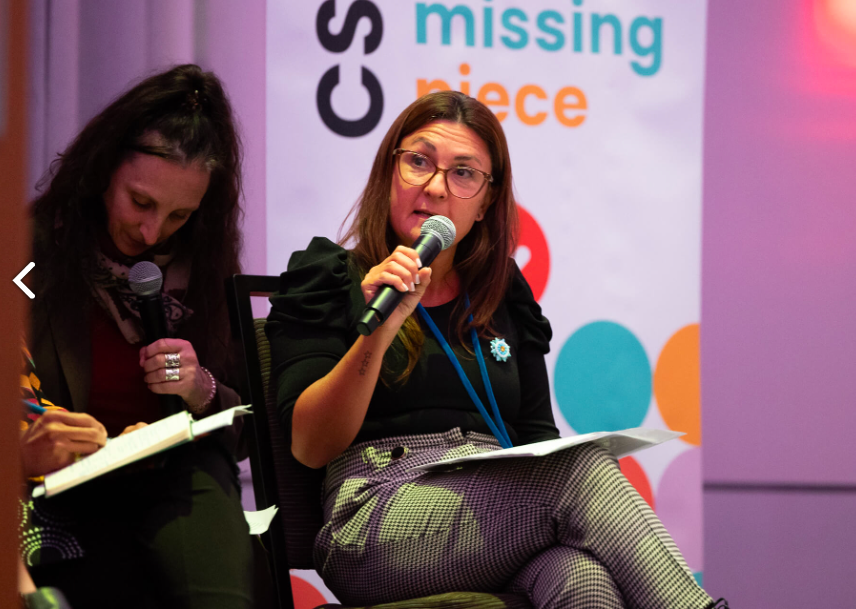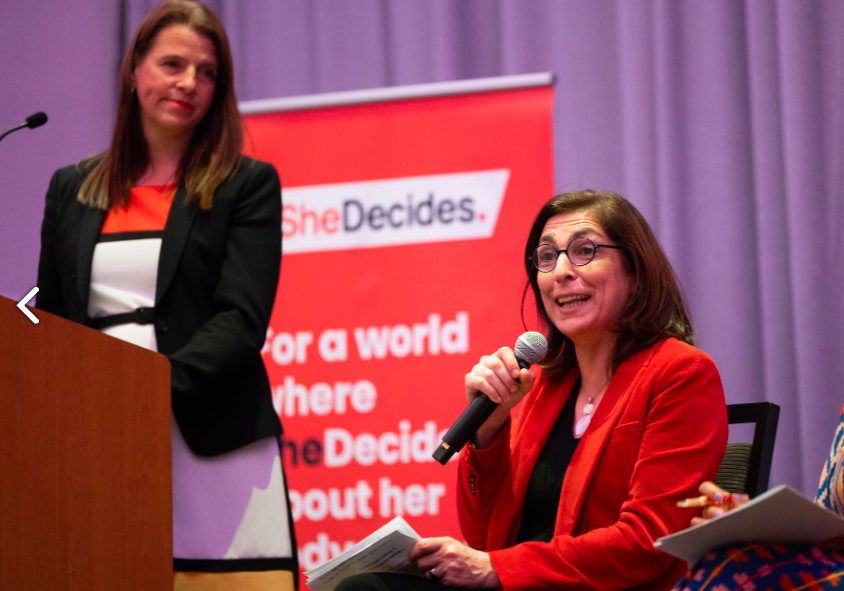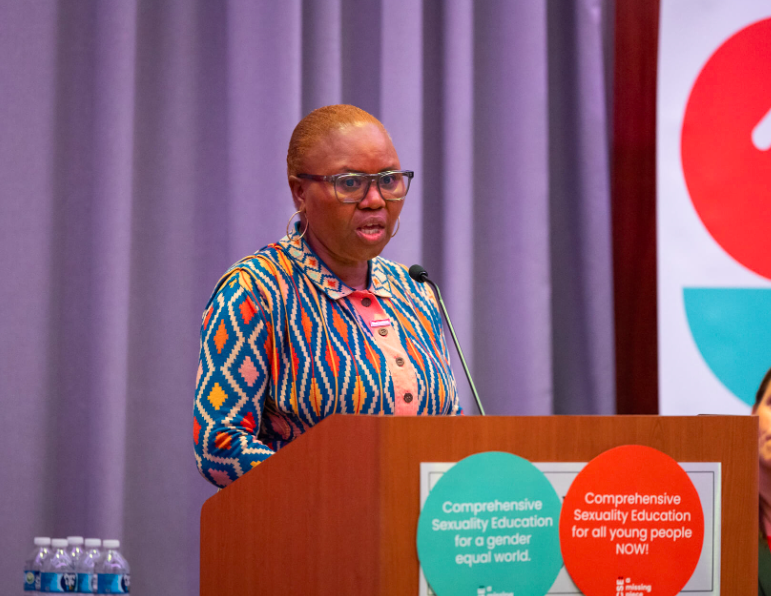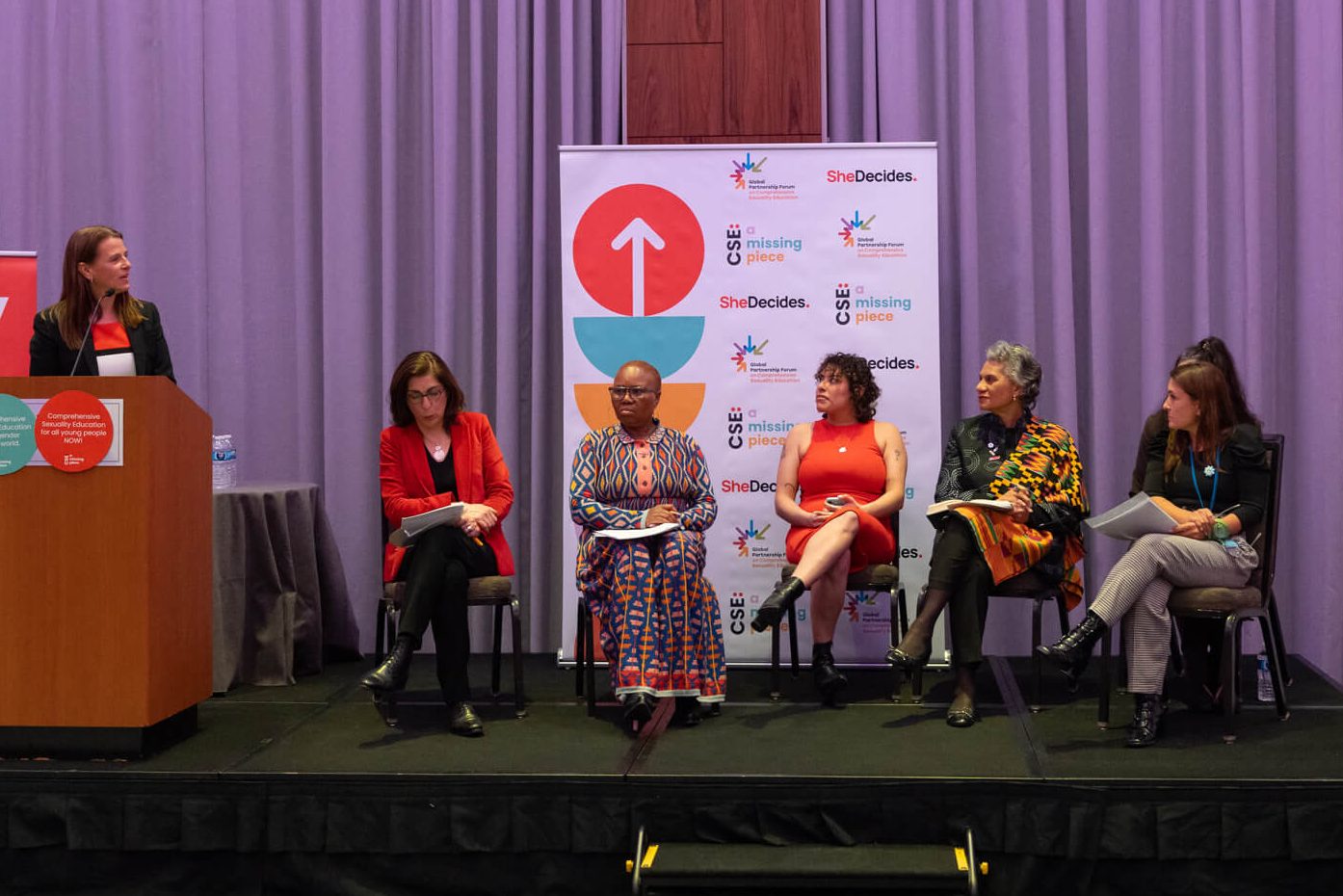Last month, on the sidelines of CSW67, SheDecides and The Global Partnership Forum on CSE hosted a high-level event to spotlight the important role that Comprehensive Sexuality Education (CSE) plays in achieving gender equality. We followed up with three of the speakers from the panel event – Government representatives from Argentina, Portugal and South Africa – to ask them more about Comprehensive Sexuality Education and its role in building a gender equal world.
From Argentina: Paulina Calderón, State Secretary, Equality and Diversity Portfolio, Ministry of Women, Genders and Diversity of Argentina & Head of Delegation; from Portugal: Minister Mendes, Ana Catarina Mendes, Minister in the Cabinet of the Prime Minister and from Parliamentary Affairs and from South Africa: Lindiwe Zulu, Minister of Social Development.



Why is Comprehensive Sexuality Education a priority for your government?
Argentina: Comprehensive Sexuality Education has been a priority for Argentina for a long time, because it means moving towards a more just and equal society. We know that there are gaps and inequalities in access to and participation in education. These gaps are deepening in developing countries, being greater in girls, women and LGBTI+ who are in situations of greater vulnerability. These inequalities are strongly linked to poverty. Through education in general, and CSE in particular, we can build a more a equal society.
Portugal: To put it bluntly: because guaranteeing the right to Comprehensive Sexuality Education saves lives. It is a key tool in preventing sexual abuse, in defending sexual and reproductive rights and fighting against prejudice and disinformation. CSE enables young people to understand their rights and build knowledge so they can make informed decisions about their health and well-being. And this is the foundation to achieving gender equality for all.
South Africa: The government of South Africa is committed to making sure that young people have the education they need to live a healthy life. To not be discriminated against and to be treated equally. Comprehensive Sexuality Education is all about building skills for life. Young people have the right to decide about their bodies, lives and futures. We must give them the tools to do that, and deliver on the global, regional and national promises we have made. This is how we as governments ensure equal rights for all, including for youth and adolescents.
Tell us how Comprehensive Sexuality Education can advance gender equality?
Argentina: For Argentina, CSE is key to challenging gender stereotypes and building an equal society. We know from decades of experience that when CSE is delivered in a comprehensive way we manage to disarm negative stereotypes, habits, customs and norms that limit the possibilities of girls; such as the stereotype that girls are not good at science, technology, engineering and mathematics. Our position on CSE is that it is an important tool to build and achieve gender equality and social equity, together with eliminating gender based violence, through a model of sustainable development that includes us all.
Portugal: Because Comprehensive Sexuality Education helps young people to understand what gender inequality and discrimination is and how to change it. In CSE classes, young people discuss and learn how to challenge and eliminate negative social norms, gender stereotypes, discriminatory values or harmful behaviors, such as sexual and gender- based violence and harassment. Young people need to learn about this! This is why the Portuguese government stands up together with many other governments across the world to point to the important value of comprehensive sexuality education, as a solution to achieving gender equality in society. We know it works.
South Africa: CSE gives young people self-esteem and capacity to make healthy and informed decisions in their lives. We have seen positive trends in South Africa since CSE has been strengthened. These include a drop in HIV rates among adolescent girls and women, decreases in early pregnancies, health seeking behaviours have improved, young people can identify and report sexual abuse, prevent HIV infections and stay on treatment. Young people better understand how to prevent bullying and stop negative peer pressure. Additionally, CSE prevents school dropouts caused by ill-health or unwanted pregnancies. This is why CSE is so important. CSE help keep our girls in school, where they have the right to be. We know this – CSE works and gives results!
What do you say to others that want to invest in the futures of young people?
Argentina: We, as States must remember that we have an obligation to promote and protect the human rights of our populations. That is why we need to sustain and strengthen all efforts for girls and LGBTQI+ schooling, so that they do not encounter obstacles vis-à-vis boys. We have the responsibility to design common education guidelines to build skills with a gender equality and diversity perspective to address gaps in the implementation of human rights.
Portugal: Comprehensive Sexuality Education gives us a very concrete solution on how to increase gender equality, well-being and health amongst young people - through education. Everyone has the right to education. We will never achieve the global goal on gender equality and women and girls’ empowerment if we don’t invest in education that teaches young people as well as adults about gender equality and human rights. We need to accelerate our political action to achieve the global goals by 2030. This is the time to advance our support for young people in the world. When young people are empowered through education to stand up for equal rights for all - societies do change!
South Africa: I would like to say this: listen to what young people say! We have the largest generation of young people ever in the world. They know what they need – and we need to support them! Comprehensive Sexuality Education is a solution – not a problem. We know that there is sometimes resistance, misunderstandings or misconceptions amongst decision makers, leaders, or even parents to Comprehensive Sexuality Education. But we need to look at the facts. And talk about the positive results we see when young people have access to this very important, life-saving education.
